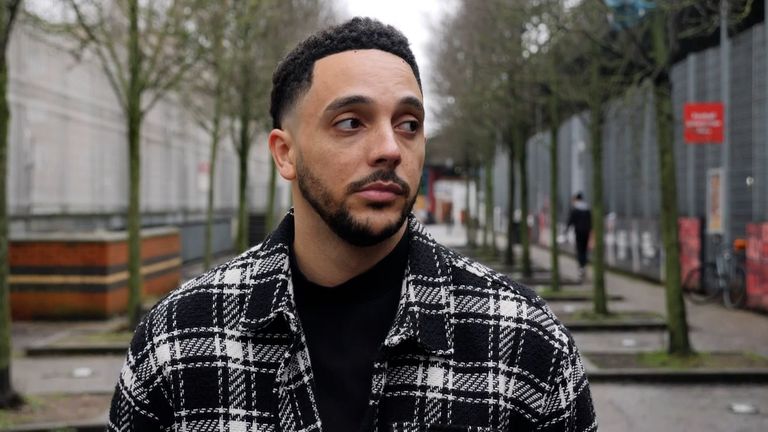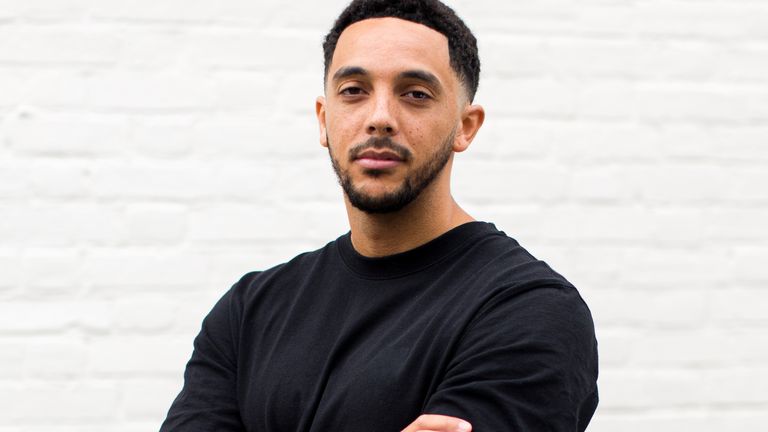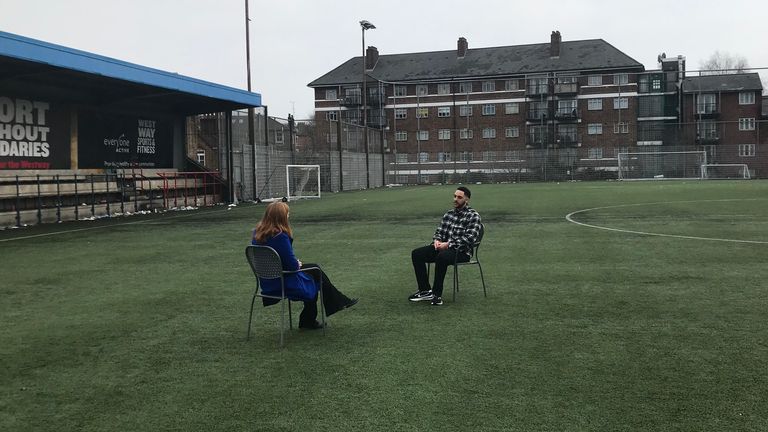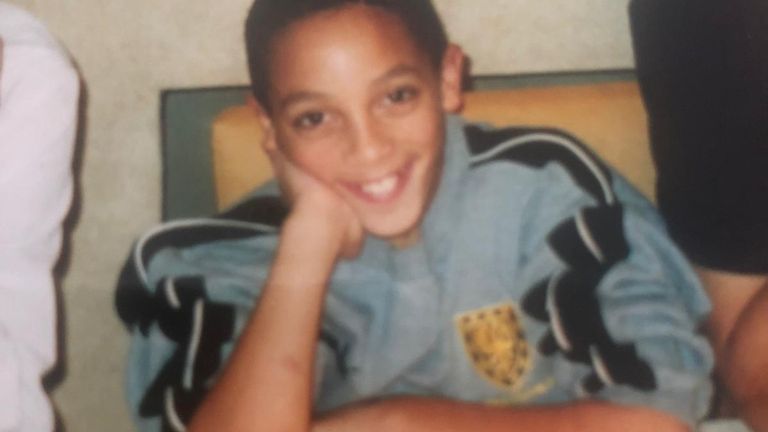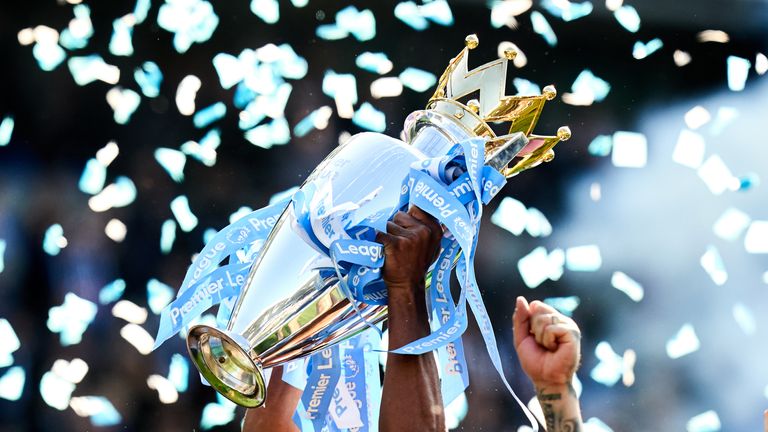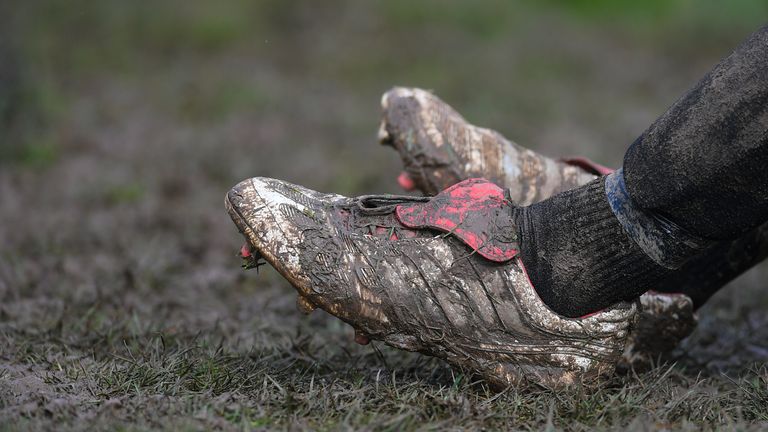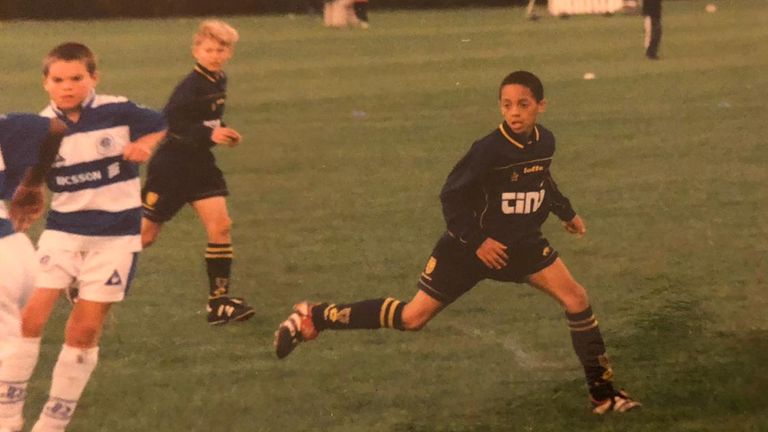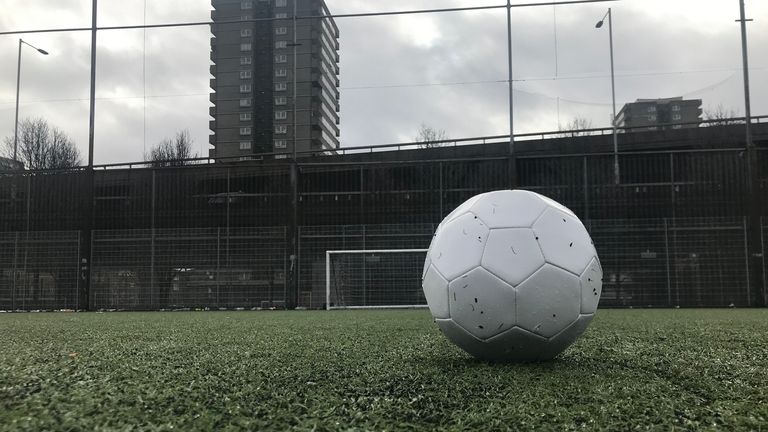Max Noble: Former football starlet on how game exploits boys on brink of Premier League dream
Former youth starlet Max Noble tells Sky News of the "toxic atmosphere" within elite academies that left him with depression.
Thursday 4 February 2021 06:27, UK
Max Noble, once one of the country's most talented young footballers, has spoken out about the exploitation of boys in elite academies, labelling it the game's "biggest kept secret".
Signed by Fulham Football Club aged 15, Max began training with the first team at a time when the club was in the Premier League.
He was also a standout player for Wales as a youth international, alongside worldwide superstars Gareth Bale and Aaron Ramsey.
But Noble is speaking out now, in his first television interview, for the hundreds of boys who pass through elite football academies each year - and don't make it.
He says the exploitation of youngsters within the system is football's "biggest, best kept secret" and tantamount to child abuse.
And today, Max is supporting a network of other boys and young men who have been released from academies, many of whom are suffering with anxiety, depression and self-harming.
This is his story.
Max started playing football after school in the park with his dad and was spotted by talent scouts for Wimbledon FC aged eight. He joined the club, not far from his London home, and at 12 he was offered a four-year contract.
"Looking back, to offer a 12-year-old a four-year contract is ridiculous but at the time I was just impressed by it - it's the carrot that's dangled in front of you, to not just change your life, but change your family's life," he says.
When Max was 14, Wimbledon FC became MK Dons and relocated to Milton Keynes, too far for him to travel.
"I was still in contract so another club had to buy me," he recalls.
"I ended up joining Fulham at 15."
Time at Fulham
"I'd love to say that I have happy memories of Fulham; that even though I didn't make it, I had lots of good experiences and transferable skills," Max says.
"But sadly, I don't look back on my time there with any fondness. Football academies are really toxic environments. They're young boys looked after by grown men who have no care for them."
Fulham persuaded Max to quit school at 15, before sitting his GCSEs.
"You're told that is what you have to do to make it," he says.
"But to take a child out of school with no qualifications and then to leave him in the lurch three years later, when those qualifications might have come in handy, is completely wrong."
Medical care
At 12, Max was diagnosed with Osgood-Schlatter disease - intense pain when the kneecap is not fully developed and placed under too much pressure.
While at Fulham, he was given repeated steroid injections in his knees.
"At 16 I'm getting injections in my knees - so many, maybe 10 or 15 over the course of two years," he says.
"I was given painkillers daily. I've got friends who were sent out with four or five strappings on their legs just to train.
"You're bent over a barrel because if you don't play or train you're out of the team. I had tendinitis in both of my knees and my achilles.
"They told me 'the more you play, the easier it will get and the better you will feel'. But it didn't. I couldn't drive, sit still or go to the cinema because my knees were on fire.
"And I could see the way they were looking at me, I was damaged goods."
Discrimination at the club
"There was racism at Fulham," Max says.
"The adults would make racist jokes in the changing rooms and that would make children feel it was OK.
"There were seven or eight black boys in the team and we were told that because we had such bad attitudes we couldn't eat in the canteen and would have to eat in changing rooms, so we were given sandwiches on a tray on the floor of the changing rooms, dirty after everyone had showered.
"We were all from different areas of London, different backgrounds, different families, yet almost without fail the black boys were labelled with a bad attitude - lazy, we don't listen, flashy.
"They would say: 'Why do you wear those clothes? Why do you listen to that music?'."
Release from academies
Max was released by Fulham at 19 requiring double knee surgery.
"I went to a specialist and he said my tendons were the worst he'd ever seen for a 19-year-old," he says.
"Fulham wouldn't pay for the surgery, so I had to use the tiny amount of money I'd saved to pay for it.
"That was the most damaging thing for me, to know they didn't care, I'd been cast on the rubbish heap.
"But maybe I was one of the lucky ones because I've got friends who were told they had been released by email, others who were escorted off the premises by security when they turned up for training."
Searching for a job afterwards
"I went to the job centre and applied for a job working a night shift at a supermarket for minimum wage," he says.
"They almost laughed me out the door because my knees were so bad I couldn't stand or sit for prolonged periods.
"To go from where I was, on brink of a Premier League career, and then not being able to get night shift work on minimum wage at Asda, it was heart-breaking."
Mental health problems
For two years after he left the academy system, Max could barely leave his room because he was overcome by anxiety and depression.
And he says he's far from alone: "There's no aftercare in football for young boys who have given and dedicated whole lives to one or couple of clubs.
"For you to then feel like you're a failure because you didn't make it is why we see boys committing suicide. I've got two friends who have tried to kill themselves, I've got another two who have actually hung themselves.
"I've got a friend who has scars up his arm from cutting himself - all from academies in London, it's a massive problem in football."
Changing the law
After getting an internship at a fashion house, Max has created a clothing brand called Certified Sports - and a percentage from each sale will be donated to help and psychologically support former and injured athletes.
"I want things to change for the next generation," he says, adding: "This is an abuse scandal and it's probably in every academy in the country. There's no aftercare system in place and that has to come from the FA.
"If a club takes a kid out of school and promises them a dream, they can't just chuck them on the rubbish heap and say, 'we'll bring in 15 or 20 more boys'.
"You have to look after them. That should be a law."
Fulham's response
In a statement, Fulham Football club said: "We condemn bullying, racism and discrimination in any form and work hard to ensure that they have no place here.
"The club is investigating and to date has found nothing to support the historic claims.
"The club will liaise with all relevant parties as the process continues."
Max is encouraging other former academy footballers to share their story. He also has a website and created a short film which can be viewed below.
:: Anyone feeling emotionally distressed or suicidal can call Samaritans for help on 116 123 or email jo@samaritans.org in the UK. In the US, call the Samaritans branch in your area or 1 (800) 273-TALK.

